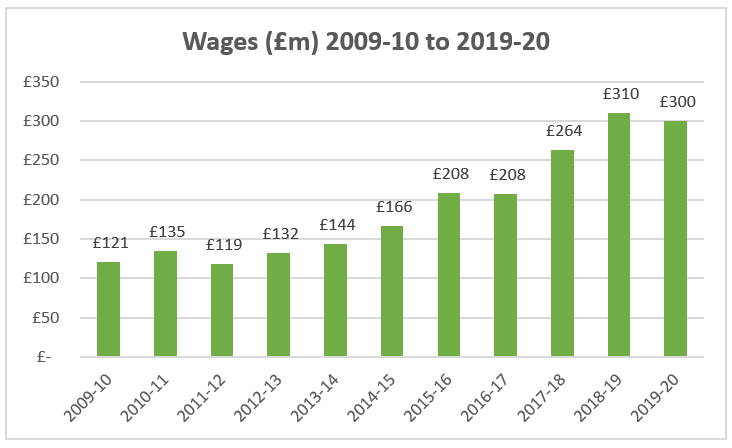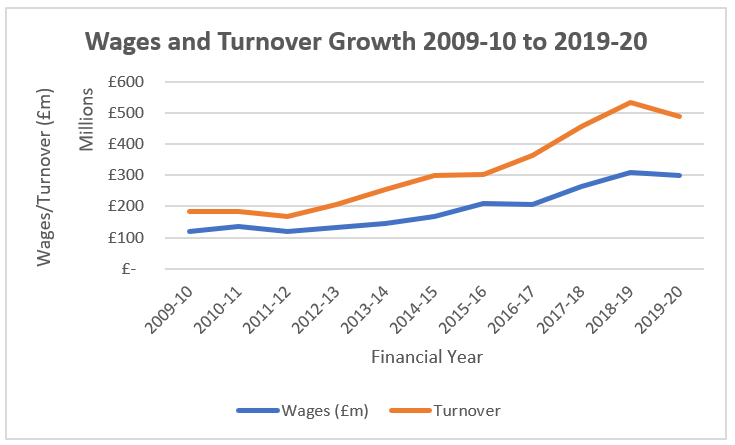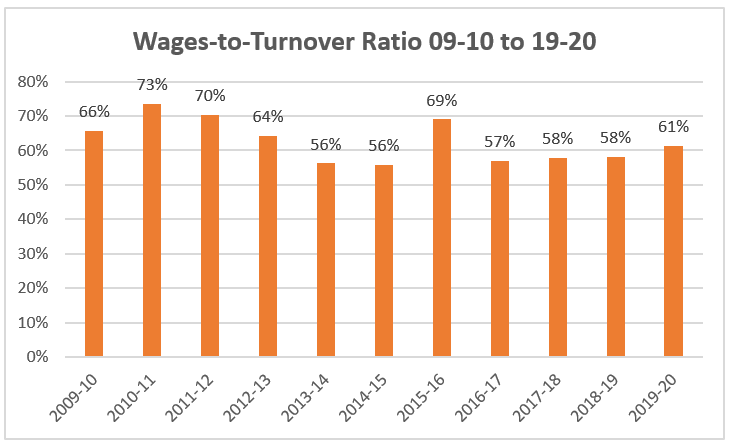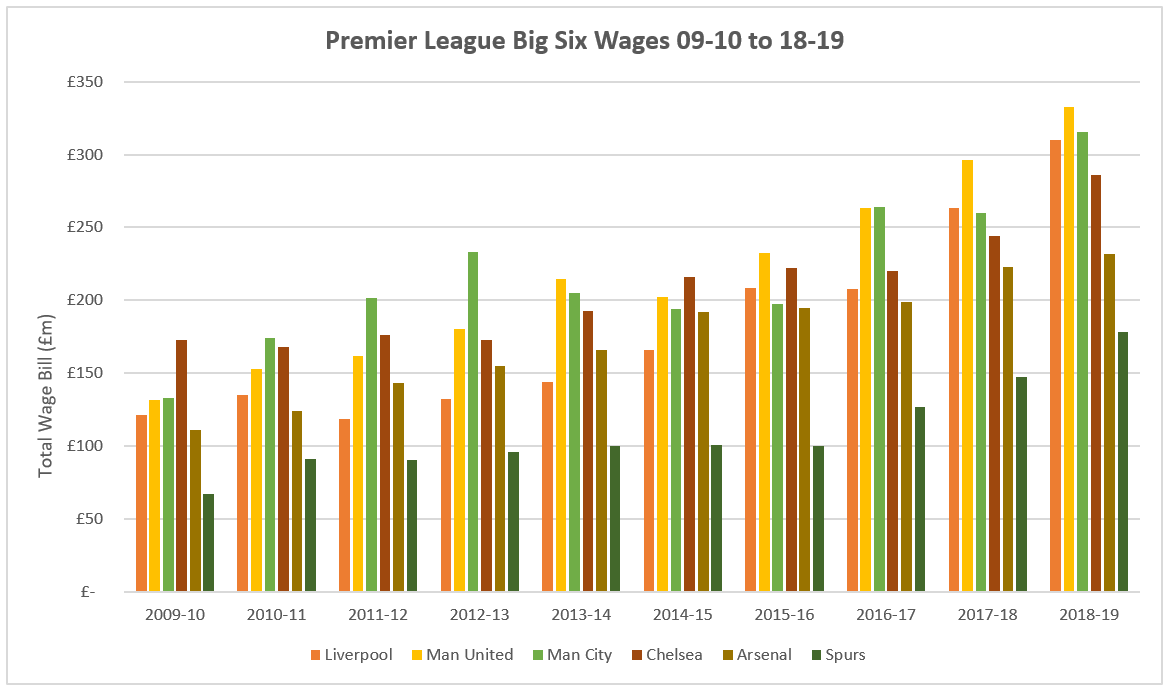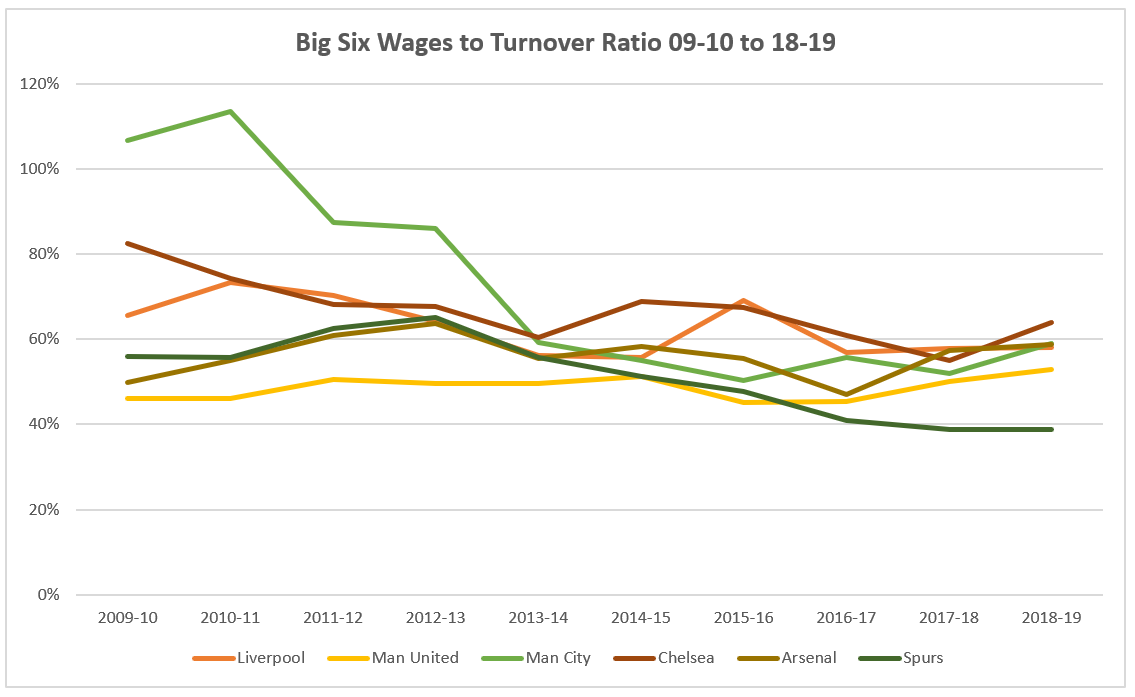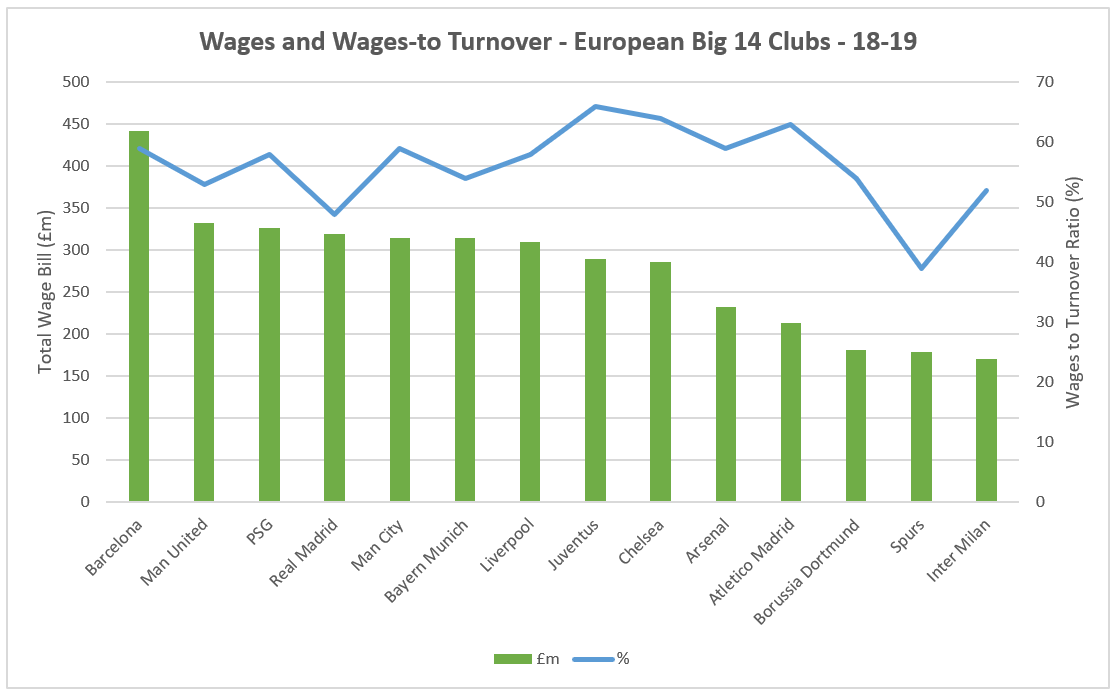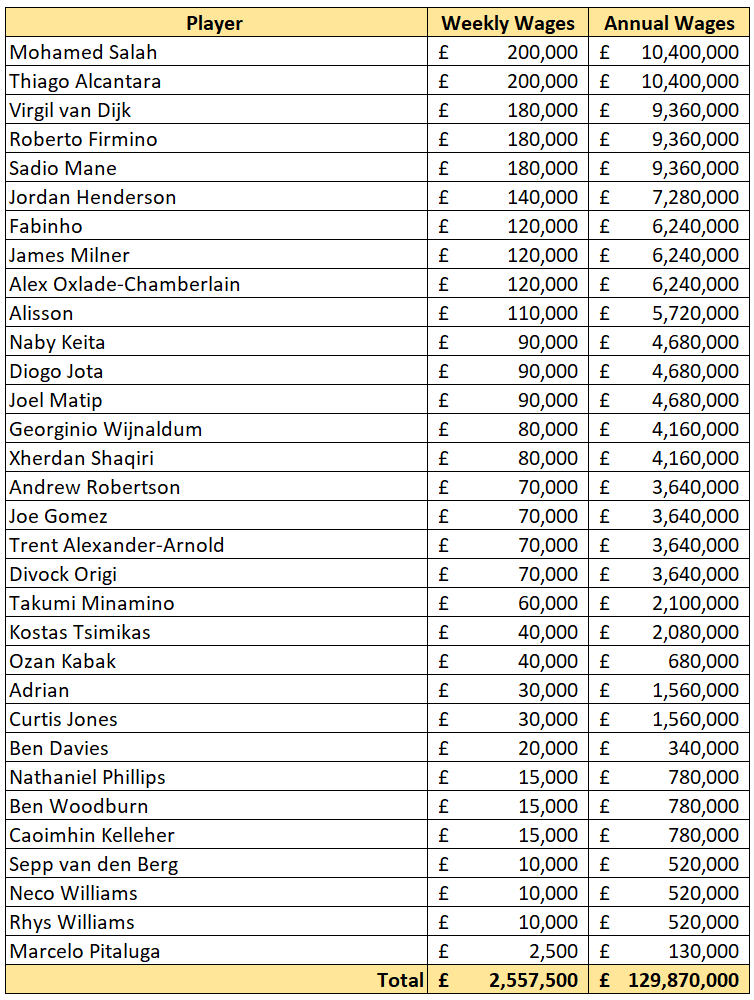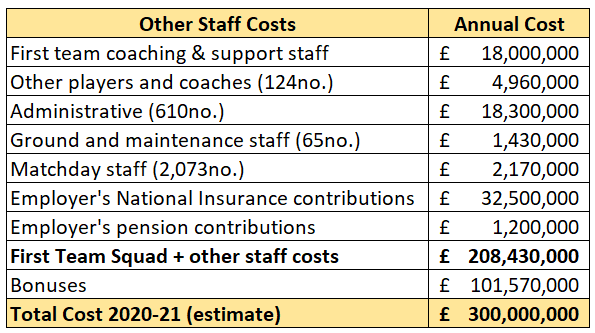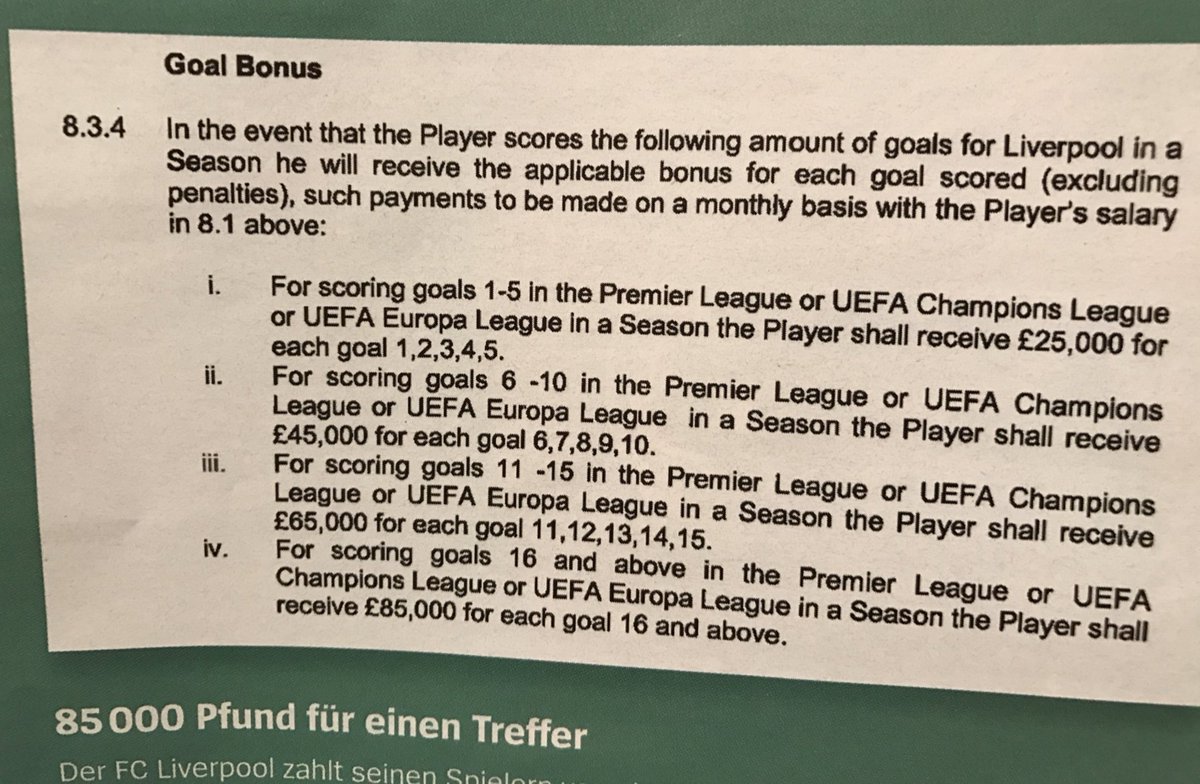Since their defeat to Man City last weekend, all aspects of Liverpool Football Club have come under scrutiny- including finances. Remuneration of players and other staff is a huge yet largely misunderstood element of its financial picture. This thread aims to shed light on this.
When owners FSG took over the club in October 2010, LFC's wage bill stood at £121m. That was the amount the club paid for all staff, from players to those working in the club shop. In the subsequent years, that bill grew by 256% up to 2018/19 (2019/20 figures are estimates).
This significant growth in wages broadly aligns to a growth in turnover over the same period of 288% (from £185m in 2009/10 to £533m in 2018/19). Most of the growth in turnover was due to broadcast revenue, but commercial income grew three-fold (£62m in 09/10 to £188m in 18/19).
When looking at wages relative to turnover, the ratio was relatively high before stabilising between 56-58% for all but one of the seasons between 13/14 and 18/19. As a general rule of thumb, the lower this ratio, the greater the available funds there are to invest elsewhere.
When LFC's wage bill is benchmarked against that of the now-traditional Premier League 'Big Six' over the ten seasons from 09/10 to 18/19, it was fourth highest in 09/10, fifth of the six for four successive seasons (11/12-14/15) and rose to third by 18/19.
When looking at the wages-to-turnover ratio across the Big Six, Man City's was excessively high until the arrival of FFP when it, coincidentally, fell significantly to less than 60%. Man Utd's ratio maintained at approximately 50% for almost the entire period- which is ideal.
A key thing to note is that research and analysis produced by some has highlighted the correlation between the wage bill and success. After four successive seasons of having the fifth highest wage bill in the Premier League, the club had to find a way to compete despite this.
In early-2013, the club decided to structure contracts to be more incentivised, performance-based deals. This article from the time explains: https://www.liverpoolecho.co.uk/sport/football/football-news/liverpool-fc-change-player-contracts-3325019
Performance-based bonuses have been around for a long time in football, but these deals introduced by Liverpool were said to be more heavily bonus-based than nearly all other Premier League clubs. It's difficult to argue against the move to this approach.
Indeed, the wage bill had swelled to £310m by 2018/19, largely off the back of the club's success and performances. Across Europe, that meant LFC had the seventh highest wage bill in Europe, just narrowly behind Bayern Munich, Man City and only £9m less than that of Real Madrid.
What's interesting to note is that Liverpool's wage bill was higher than that of Juventus in 18/19, who had (and still has) the not inconsiderable salary of one Cristiano Ronaldo on their books. Barcelona's wage bill was far higher than any other club, thanks largely to Mr. Messi
This analysis shows that, in recent years, Liverpool's incentivised payment structure has paid dividends and has also turned the club into one of the biggest payers in world football.
To help explain where the £310m goes, I have produced the following estimates for weekly wages paid to LFC players for the current 2020/21 season- based on an estimated lower wage bill of £300m (which is comprised of basic wages, signing-on bonuses and/or loyalty bonuses):
The total annual sum of all these deals doesn't come close to the £300m total, however. The following breakdown shows estimated figures on what else comprises that overall figure (apologies for the typo in the image:
In my assumptions, I have assumed all matchday staff are still getting paid by the club on a casual hours basis- but if they are not then that represents somewhat of a saving for the club. What the above breakdown does show is how huge bonus payments are relative to the £300m.
Bonuses are paid for events such as appearances, goals, assists, clean sheets, a top four finish, major trophies won plus more. I have also assumed image rights fees as part of that £101.6m. This article by @FootballLaw perfectly explains image rights https://www.danielgeey.com/post/image-rights-in-uk-football-explained/
This is an extract from a Football Leaks-based article in the German press from 2016 that was reported to be the goal bonus structure for Roberto Firmino. If accurate, it gives some idea of the scale of bonuses that are there to be earned for strong performance.
Bonuses will not be evenly spread throughout the squad. Those with the best negotiated bonuses will benefit more than players on the fringes of the squad.
This helps to dispel a myth that, just because Liverpool's reported top basic salaries are lower than that of other rival clubs (e.g. Man United, Man City, Chelsea and Arsenal paying several players a weekly sum of £300k+ per week), it means the club doesn't pay as well as them.
Linked to wages, another area of heavy investment has been agents fees. I posted a thread last year specifically on this subject, but this extract from an FA document (covering transactions involving payments to agents between February 2019 to January 2020) is interesting.
It shows that, during this period, the club paid £30.3m (the highest in the EPL) on agents when during that period, less than £10m was spent on transfer fees and barely any first team squad contracts were renewed. The amount of money spent on these transactions is... odd.
Nonetheless, the above analysis shows why the club has in recent years transitioned from being a stepping stone to a destination club. The challenge for the owners is to maintain this whilst freeing up funds to make necessary upgrades in certain parts of the squad.
Given the loss of £80m+ of matchday revenue and EPL/CL TV money rebates, there are unlikely to be large sums of surplus funds available to make major upgrades. In other words, the club will almost certainly have to sell perhaps one key player to generate a sizeable transfer pot.
That will be a tough decision- but it's one that LFC made with much success just over three years ago when it moved on Coutinho and used proceeds from his sale to Barcelona on van Dijk and Alisson.
Should one key asset's sale plus the departures of a range of other players on the squad's periphery materialise, Klopp and Edwards should have sizeable funds to go to market with- and its established base for pay should be enough to entice near enough any player on the planet.
To listen to me go into even more depth and detail on this and other finance/commercial-related matters pertaining to Liverpool Football Club, do check out my podcast - Money Talks - featured exclusively on @AnfieldIndexPro (free seven day trial available).

 Read on Twitter
Read on Twitter